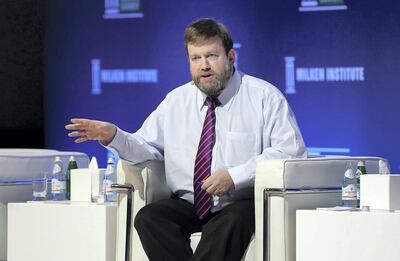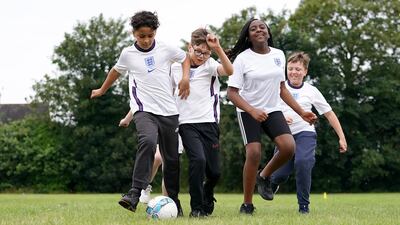In recent weeks, acclaimed American pollster Frank Luntz has carried out studies in the UK on how the country can avoid importing the type of divisive politics that has wrought so much damage in the US.
In a conversation with historian Niall Ferguson last week, Mr Luntz's fundamental recommendation to the British was looking at what is being taught in schools. Ensuring that the state does not lose control of the narrative in schools, he said, is paramount in keeping the country on a moderate and united path. "Protect your kids," was essentially his clarion call to his British audience.
The challenges for educationalists and administrators concerned with extremist influence on the world’s youngest are particularly acute. The issue is one of the core concerns to be taken up by the Institute for Freedom of Faith and Security in Europe (IFFSE), a think tank that is launching a Brussels office in September.
It is obvious that the basis of every country’s identity lies in the childhood years. In the current environment, officials warn of a strong motivation for external groups to penetrate schools. There are people and ideological groups seeking to use children. Many, after all, are vulnerable at different points in their childhood and, therefore, open to influence. Schools and youth clubs are part of the ladder of radicalisation that extremists groups use to recruit foot soldiers and new members.
Across Europe there are stark reminders of how open schools have become to dangerous or malign influences.
France has seen two teachers gunned down. Educators there and in Britain are constrained in what they can teach. One school, Batley Grammar, faced severe disruption after parents and community activists protested about one teacher. It is one of many instances in which teachers feel the external influence in the classroom means there is a threat to them and their careers. Sweden’s school board has been heavily criticised by experts, such as Magnus Ranstorp of the European Radicalisation Awareness Network, for funding and failing to regulate schools that are run by known ISIS or Muslim Brotherhood sympathisers.
School practices are also affected by parents' boycotts of activities as routine as swimming lessons. That is before policymakers get to the level of the national curriculum and what can be taught. This is just as vital because it is through the textbooks and the content of lessons that ideas and narratives are passed on from one generation to another.
If the fundamental values are trimmed or layered in moral equivalence simply to ensure that the most vocal do not have an issue to exploit, then learning is damaging. If textbooks can be used as a platform for hatred, there is a blueprint for radicalisation.

A panel recently hosted by IFFSE heard from a French contributor who pointed out that schools were having difficulty teaching the history of the holocaust because pupils were challenging the lessons with contemporary grievances. Peter Rosengard, a British-based contributor to the IFFSE panel, pointed out that children as young as seven need an introduction to concepts such as tolerance and fundamental values.
Mr Rosengard's work is based on the premise that children have no memory of events such as the 9/11 attacks in the US, which were carried out by Al Qaeda extremists. Yet, this as well as atrocities like the Christchurch attack by a neo-Nazi need to be introduced to schools so that children can grasp the damaging nature of confrontation and division.
It does not help that anti-extremism programmes in many countries face a determined set of detractors willing to exploit and promote any negative news.
Take, for example, the UK’s "Prevent" programme. A panel of critics have set up an alternative platform to review it due to concerns that the official review will amount to a whitewashing exercise. So when reports emerge, such as one this week that many children with autism have been referred to Prevent, they are reported as a bad thing. In fact, the contextual experience of these children in the situation is entirely unknown.
Some parts of the world have shown more urgency about the situation than others. The IFFSE panel also heard from Marcus Sheff, the chief executive of Impact-se, a monitoring body that praised the UAE's moral education programme in schools for its focus on “moderation, respect and peace making”. Jordan was also praised for its reformist education model while black spots were cited such as Qatar, where anti-Semitism is "central" to its textbooks.
Almost unnoticed, there is a vast struggle for the mindset of the next generation taking place in schools around the world. The battle is one where language matters. So do the facts of history and the weighting a country chooses to give to the events that shaped the world we live in.
Dogmas can be easily accepted in the school environment. It doesn’t take long for a child of eight to inculcate the ideas and the ways of thinking that will be with them for life.
Nothing is more important, but in too many places the issue is neglected.
Damien McElroy is the London bureau chief at The National


